Appreciating The Benefits, Committing Themselves
- Par Kimeng Hilton
- 21 sept. 2022 19:53
- 0 Likes
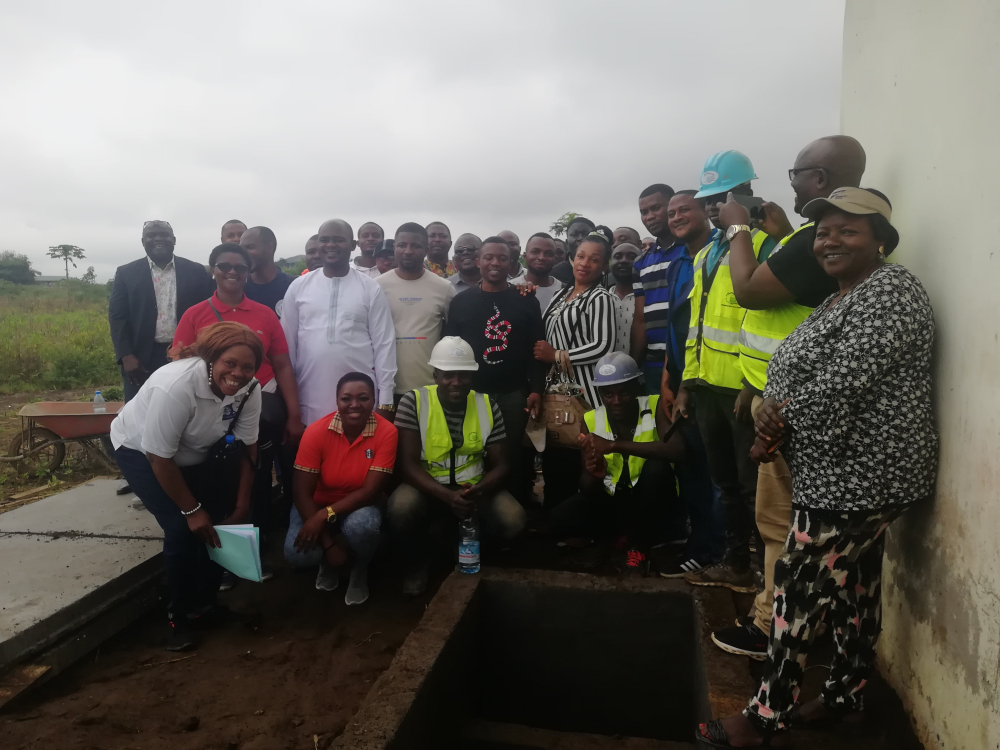
A workshop held in Buea in the South West Region from September 13-17, 2022 to train stakeholders for the UNICEF-funded project to construct 40 biologically-filtered public toilets in the South West Region. To help to fight cholera.
“We had an unprecedented outbreak of cholera which was unprecedented, with scores of patients lying on hospital floors in Tiko, Limbe and Buea in the last four months. We had over 6,000 cases of cholera with 100 deaths. For now, the epidemic is over,” recalls Dr Agwe Samuel, South West Regional Coordinator of the Centre for the Fight Against Epidemics and Natural Disasters. He is also Assistant Incident Manager for Cholera Response in the South West Region, and oversees the UNICEF-funded biofil toilet construction project.
40 Toilets For Three Health Districts
“Some 40 public biofil system toilets funded by the United Nations Children’s Fund, UNICEF will be constructed in Fako Division of the South West Region – 20 in Limbe and 10 each in Buea and Tiko. All the toilets will cost about 25 million FCFA. It is collaboration between councils and UNICEF. UNICEF will do the construction, while the councils concerned will raise the walls and roof the toilets,” Dr Agwe discloses.
Everyone’s Concern
“We are so grateful to UNCEF for the wonderful opportunity they have given us to fight cholera. We hope to continue to build this partnership. Cholera is not just an issue for the Ministry of Public Health. It concerns the community and society as a whole. Cholera is like pregnancy that cannot be hidden. When things do not go well in a community, it can manifest in the form of cholera. We urge stakeholders like councils to collaborate with the Ministry of Public Health to fight cholera,” Dr Agwe pleads.
Cholera Doesn’t Ring A Bell!
“We thank UNICEF for its largesse in offering to construct 10 public biofil toilets in our municipality. UNICEF has for long been a partner to Cameroon, always seeking to address the concerns of grassroots people,” said Kimeng Waindim Rudolf, the Fourth Deputy Mayor, Tiko Council in the South West Region. “The project touches the rubrics of the grassroots. Again I thank UNICEF and government for the support. Cholera does not ring a bell before it strikes. In the past, we reacted to outbreaks. This means we simply waited for outbreaks before taking action,” Mayor Kimeng cautions.
Pledge To Be More Proactive
“The toilets and the new technology they bring along mean that henceforth we will be more proactive in our approach to avert further cholera epidemics in our municipality. This is just the beginning. We shall try to expand the project and also teach people how to use them. The 10 toilets will serve as trial. As people see how they function, we will encourage them to also construct them in their homes because of the enormous advantages biofil toilets offer,” the Mayor concludes.
Much Reduced Construction Cost
“The cost of constructing the biofil toilet varies, depending on the area because of the cost of material. The smallest size biofil toilet costs about 500,000 FCFA, while the old toilet system costs as from 700,000 FCFA,” says Fotso Marcellin, chief trainer at the workshop.
Additional Project With UNICEF
“With our partnership with UNICEF, the Environmental Protection and Development Association, EPDA will use the knowhow acquired from the training to construct more biofil toilets. We will train community members on how it works and how to use it. We have a project with UNICEF to construct 10 public toilets, different from the 40 UNICEF is going to construct in Fako Division. Some 25 water points will also be constructed.
The project has already begun with the selection of sites for the construction of these 10 biofil toilets in Fako Division of South West Region and Melong in Moungo Division of Littoral Region. Meetings have been held with the councils to choose where to construct the toilets,” Bidias Bidias Aime Sidoine, WASH Engineer with EPDA, discloses.
Involving Schools, Communities
“The training is important to us because we have been doing Water, Sanitation and Hygiene, WASH in schools to prevent diseases spread through poor sanitation. Our activities also include the community because education begins from there before getting to schools. With this knowledge and knowhow, we are going to apply for grants to construct biodigester toilets in schools and communities where the children come from,”
Walters Chuye, Technical WASH Officer for the Foundation for Inclusive Education, FIED promises.
MINEE Is There For You!
Ayimele Azise Helen, the Service Head for Water in the South West Regional Delegation for Water Resources and Energy pledges: “The Ministry of Water Resources and Energy, MINEE, and its regional delegation in the South West see this being very timely and important. The Downbeach area of Limbe, for example, has no public toilets. We will source for funding from UNICEF and other partners to construct some biofil toilets in Downbeach and other areas without public sanitation facilities.”
“We have been concerned about how to improve the living conditions of our people health-wise. From April 2022, we witnessed an upsurge of the cholera epidemic that affected many people. The training came on time to enable us to construct more toilets using this new technology, which is more environment-friendly and cost-effective,” Eko Frankline, an Environmental Engineer and Service Head for Risk Management and Fire Fighting, Limbe City Council notes.
Spreading The New Technology
“The project is going to construct 20 public toilets in our municipality using the new technology. The City Council will take charge of the super structure by raising the walls, roofing and providing running water. We will do the largest-type or industrial size biofil toilets for com...
Cet article complet est réservé aux abonnés
Déjà abonné ? Identifiez-vous >
Accédez en illimité à Cameroon Tribune Digital à partir de 26250 FCFA
Je M'abonne1 minute suffit pour vous abonner à Cameroon Tribune Digital !
- Votre numéro spécial cameroon-tribune en version numérique
- Des encarts
- Des appels d'offres exclusives
- D'avant-première (accès 24h avant la publication)
- Des éditions consultables sur tous supports (smartphone, tablettes, PC)
Reactions
De la meme catégorie
Concours d’entrée dans les Enieg et les Eniet : 12 550 places disponibles
- 24 avril 2024 12:34
- 0 likes






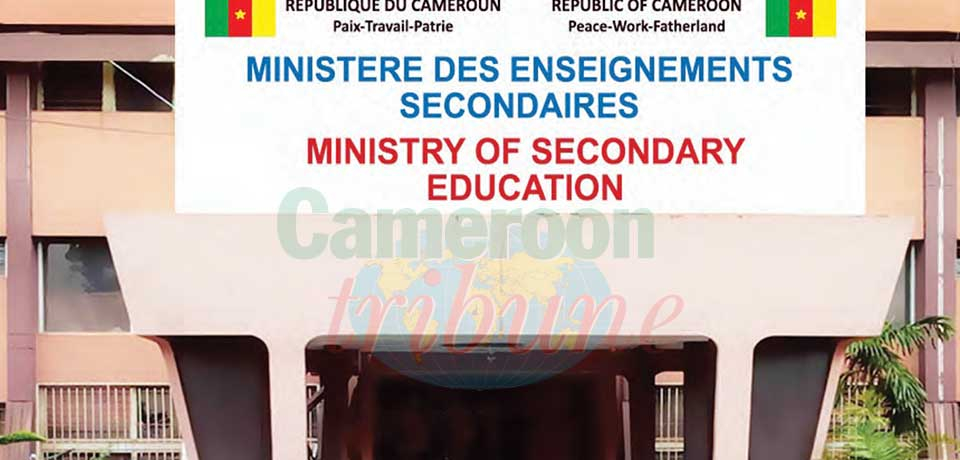
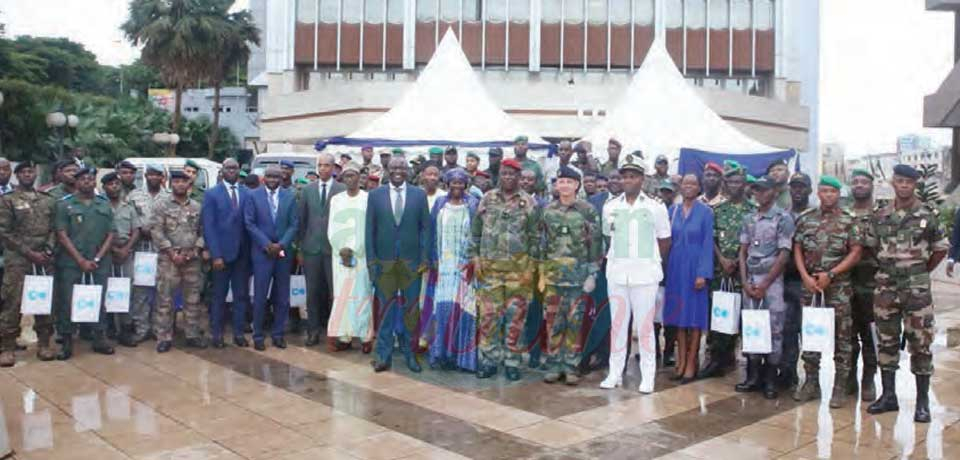
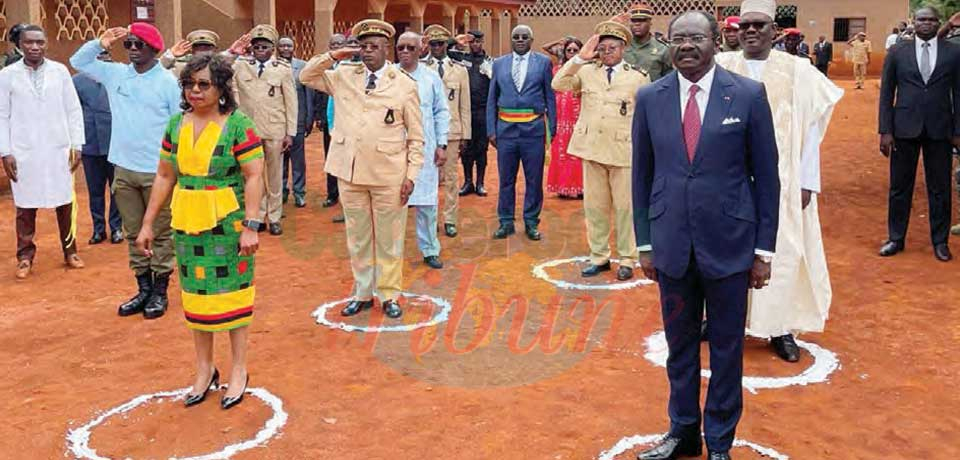
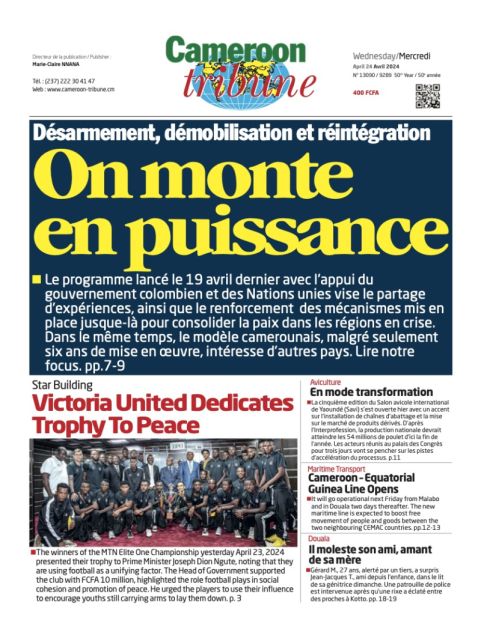




Commentaires